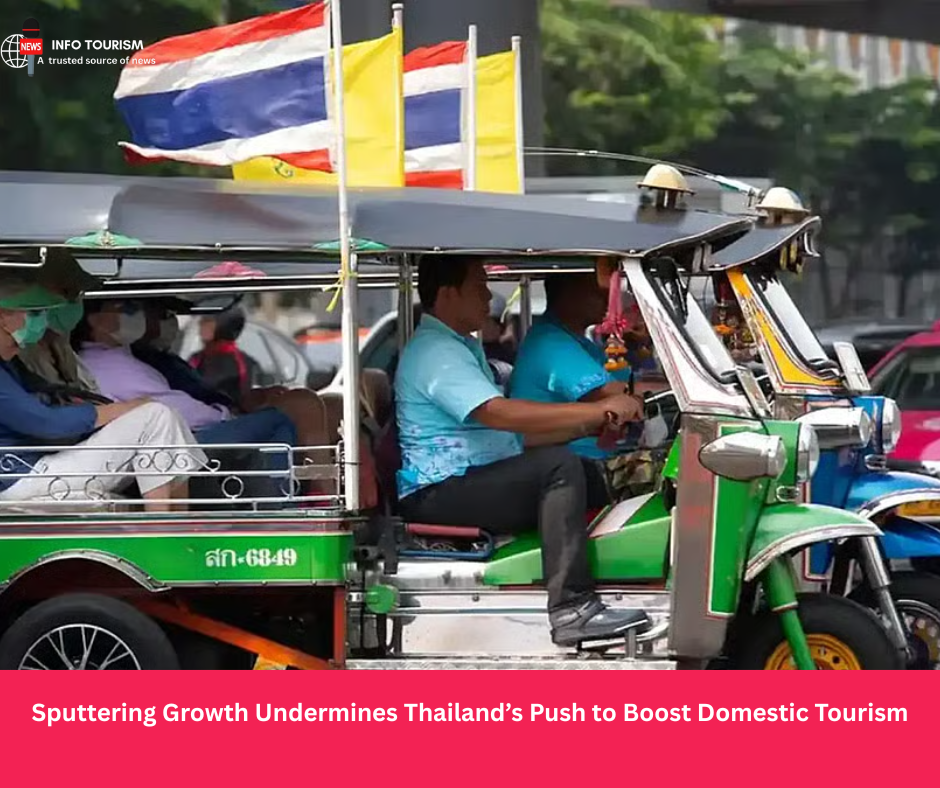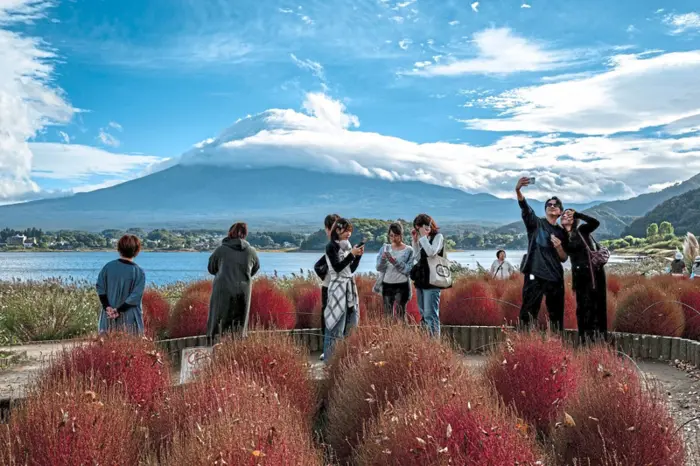BANGKOK: Thailand’s bid to revive its sluggish economy through domestic tourism incentives is facing headwinds as slow growth, high household debt and weak consumer sentiment continue to weigh on spending.
In the southern coastal province of Trang, home to emerald caves and lush islands but often eclipsed by tourist magnets Phuket and Krabi, hopes were high that a new government tax break would draw more local travellers. The initiative offers Thais up to 30,000 baht (approximately RM3,880) in deductions for travel expenses between October 29 and December 15, part of a broader push to stimulate spending and support second-tier destinations.
But despite the attractive offer, businesses say the response has been muted. “Things have been pretty quiet recently, even though there were inquiries about bookings,” said Chotirot Rodmuang, marketing manager of Jaravee Tour, which operates island tours in Trang. “Reservations for November and December are down about 50% compared with last year.”
According to the Tourism and Sports Ministry, about 1.3 million Thais visited Trang in the first nine months of 2025, generating 6.7 billion baht in tourism receipts, a modest 3.8% increase from a year earlier.
Industry players say the short campaign period, coupled with Thailand’s economic malaise, has limited its impact. “Some travellers aren’t that interested in the deduction because their income is below the taxable threshold,” said Kedkanok Tanaengchuan, manager of Ruarasada Hotel. She added that red tape has also slowed down the process for businesses to participate in the programme.
The government’s travel incentive is part of a wider plan to prop up the economy, which includes a 60-billion-baht scheme to buy bad debt from about two million borrowers, and efforts to woo back Chinese tourist arrivals from China are still one-third lower than last year.
Economists at the Bank of Thailand note that domestic travel to second-tier provinces makes up around 13% of the country’s total tourism revenue. However, they warn that the gloomy economic outlook could dampen enthusiasm for travel despite policy support.
Adith Chairattananon, secretary-general of the Association of Thai Travel Agents, said past initiatives, such as the co-payment subsidy for travel expenses, were more effective in driving local tourism. “Tax incentives may not be the best tool,” he said.
In Ubon Ratchathani, a northeastern province known for its fiery cuisine and cultural ties with Laos, the usually busy cool season from November to February is expected to be subdued. Local officials blame the weak economy, recent floods and tensions along the Thai-Cambodian border for dampening sentiment.
“The tax rebate won’t be enough to make up for losses this quarter,” said Witsuta Ruangrungsidiskul, president of the Tourism Council of Ubon Ratchathani, who expects hotel occupancy to stay below 40% in the final months of the year.
Not everyone, however, is using the incentive for travel. Many Thais are instead channelling it toward dining, which is also covered under the tax rebate. “I plan to use the incentive mainly for food-related expenses,” said Pamiga Tangthong, a 30-year-old government employee.
As Thailand struggles to balance economic recovery with consumer caution, its latest tourism push underscores a hard truth in tough times: even paradise needs more than a tax break to lure its own people to explore.





